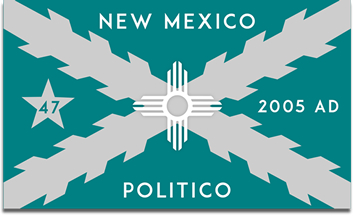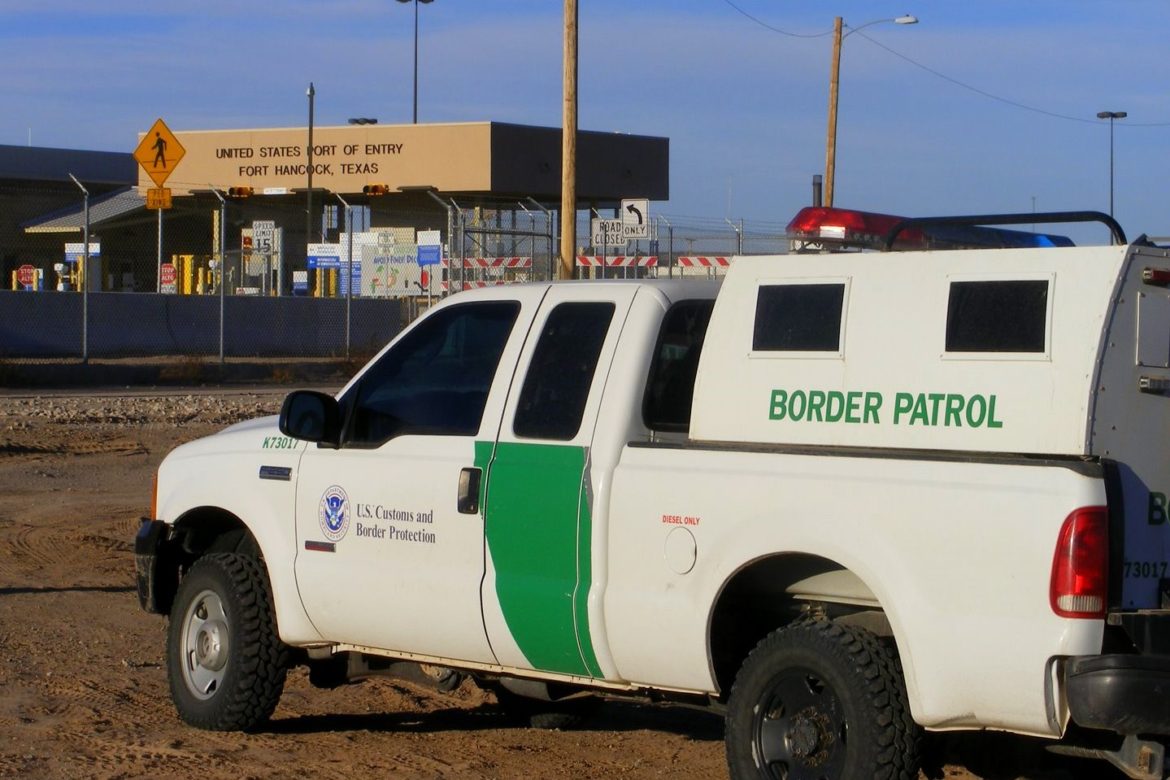As someone born and raised in the Mesilla Valley, roughly fifty miles from the U.S.-Mexico border, I grew up with the El Paso Borderland in my backyard, ultimately bestowing an intimate understanding of the relationship between the U.S. and Mexico. Our region’s existence is deeply intertwined; just as we depend on the precious water flowing through the Rio Grande to water our fields and restore our aquifers, we are dependent on international trade and cooperation to fuel the economic engine that drives the Borderplex region. The international trade that is the economic backbone of this corner of the Southwest adds up to over $100 billion in yearly trade activity: roughly $82 billion in trade crosses yearly between El Paso and Juarez, and another $25 billion in trade crosses yearly between Mexico and Santa Teresa, New Mexico.
Unfortunately, immigration and the border have long been a political football tossed around by both sides of the political spectrum. There is no doubt President Trump inherited an immigration system that has been broken for a long time, but his fiery rhetoric and policy advisers he surrounds himself with, such as immigration hardliner Stephen Miller, has exacerbated serious border security issues. And regrettably, the rhetoric coming from the White House makes it politically convenient for Democrats on the other side of the aisle, such as Governor Lujan Grisham, to claim there is no border crisis in an attempt to highlight a contrast between the Democrats and the GOP.
The political posturing on both sides is unfortunately emblematic of the state of American politics. Both sides seem content in taking extreme, abstract positions that satisfy the hyper-partisan political environment but do nothing to address the real crisis on the border. On the right, Trump’s zero-tolerance policy has proven ineffective, with over 100,000 undocumented immigrants crossing the southern border last month, twice as many as a year before. Needless to say, his threats to close the southern border would be devastating to the U.S economy, but to the credit of fellow Republicans, business groups, and even some within the White House, they were able to walk him back from the cliff.
With such rhetoric coming from the Trump-led GOP, there is a clear opening for Democrats to present sensible immigration policies. But the Democrats are in the midst of a race to the left in the primary for the 2020 presidential race, and they are being pushed further left by attempting to placate those who make up the bleeding edge of the progressive left, such as Alexandria Ocasio-Cortez. Their outlandish claims to abolish ICE may appease the open border activists on the far left but do nothing to solve an immigration system that is clearly overwhelmed and at a breaking point.
As the 2020 election draws near, it is evident that Trump is eager to make immigration a major part of his reelection platform. His recent removal of Homeland Security Secretary Kirstjen Nielsen is part of a push toward tougher immigration and border security policies, even while some within his administration are drawing up plans towards a bipartisan immigration deal. This double-headed approach is the result of a clash between two spheres of influence within the Trump administration: pragmatist Jared Kushner and immigration hardliner Stephen Miller.
The resulting mixed signals emanating from the White House has created a vacuum in leadership where an immigration deal appears unlikely. Though Senate Majority Leader Mitch McConnell said Thursday it is “way past time” for a deal on border security and immigration, and Speaker Nancy Pelosi said on the same day she is optimistic a deal would be reached, it still seems unlikely the political environment will allow the creation of serious, bipartisan legislation. The immigration political football is just too tempting a wedge issue for either side to give up.
The sad irony is that the strong U.S. economy is boosting the number of people seeking to come to America, who are running away from countries decimated by drug gangs fueled by the U.S.’s insatiable demand for illegal drugs. Tragically, the lack of leadership from Washington, including the cutting of aid, only exacerbates the humanitarian crisis.
The hyper-partisan political environment notwithstanding, sensible immigration policy should not be this difficult. Expand the capacity and abilities of port of entries to process refugees (and ensure nefarious individuals attempting to exploit the situation are stopped). Obviously, the U.S. cannot have open borders and accept everyone who wants to come here, which means we need to agree on what our priorities are. Likely at the top of the list are bona fide asylum seekers. Our economy is actually creating jobs at such a healthy pace that we have more jobs than we have workers. We desperately need more farm workers and truck drivers, so if employers could legally hire migrants eager for the chance to work they would (ironically amid all the harsh immigration rhetoric from Trump his administration is nearly doubling the number of temporary guest worker visas available over the summer).
The narcissistic, theatrical state of our politics makes it hard to foresee meaningful immigration legislation coming out of Washington anytime soon. But for the sake of our communities on the frontline of the border crisis, as well as those people fleeing violence in Central America, I hope I’m wrong.

